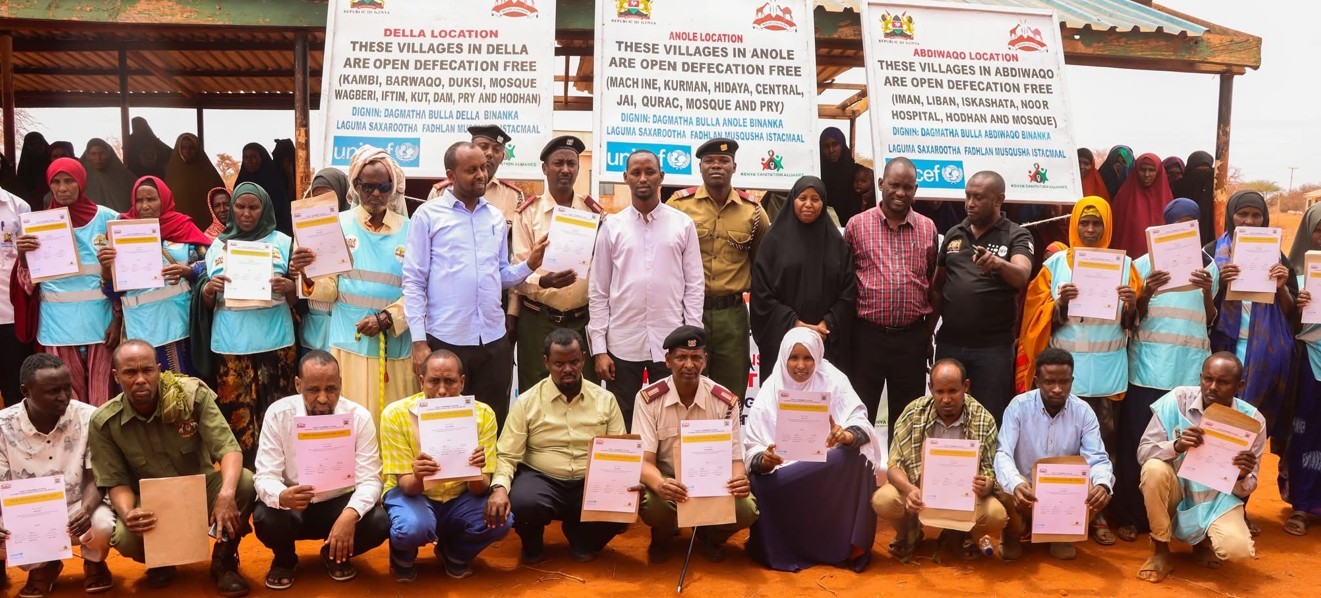Wajir marks major public health milestone as 25 villages eliminate open defecation

The success in Dela Anole Ward is now expected to inspire other parts of Wajir County, supporting the county’s broader goal of building healthier, more resilient communities.
Twenty-five villages in Dela Anole Ward, Eldas Sub-County, have officially been declared open defecation free (ODF), marking a major milestone in Wajir County’s drive to improve public health and sanitation.
The achievement follows the successful rollout of a community-led total sanitation (CLTS) programme spearheaded by the Wajir County Department of Public Health. The initiative relied on continuous community sensitisation and advocacy, encouraging residents to voluntarily build household toilets and abandon open defecation.
More To Read
- Family pleads for answers two months after Wajir Huduma Centre manager went missing
- Free Wi-Fi transforms Wajir’s Wagalla village as internet access reaches remote areas
- Court orders IG, DPP served in case over missing Wajir Huduma Centre manager Hussein Abdirahman
- Where is Wajir Assistant County Commissioner and Huduma Centre manager Hussein Mohamed?
- Third suspect charged with murder of Gaala Adan, 17, killed after rejecting forced marriage in Wajir
- Three charged with murder of 17-year-old Gaala Adan in Wajir
Speaking during a celebration in the ward, Rukia Maalim, Chief Officer for Public Health and Sanitation, commended the residents for their unity and commitment.
 Public health and sanitation team inspects toilets in Wajir before declaring villages as free from open defecation. (Photo: Issa Hussein)
Public health and sanitation team inspects toilets in Wajir before declaring villages as free from open defecation. (Photo: Issa Hussein)
"We are here to celebrate a public health milestone. Twenty-five villages have achieved ODF status, meaning every household has built its own toilet. This is a community-driven success," she said.
Ibrahim Mohamed, County Public Health Officer, echoed the remarks, stressing the wider impact of the development.
"This development will improve environmental cleanliness, enhance sanitation, and help reduce the prevalence of waterborne diseases. The construction of over 2,500 toilets is a testament to the resilience and dedication of this community," he noted.
Mohamed Hassan, Director of Public Health and Sanitation, highlighted the health benefits of eradicating open defecation in an area often affected by diarrhoeal diseases and cholera outbreaks.
"With interventions like this, we can drastically cut down cases of waterborne illnesses and other sanitation-related health issues," he said.
The success in Dela Anole Ward is now expected to inspire other parts of Wajir County, supporting the county’s broader goal of building healthier, more resilient communities.
Top Stories Today












































